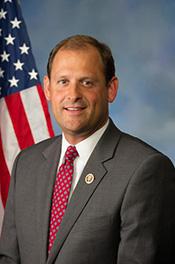0
To enhance Financial Stability Oversight Council transparency.
12/15/2023, 3:58 PM
Summary of Bill HR 3466
The bill requires the FSOC to hold public meetings at least once every quarter, where members will discuss and vote on important issues related to financial stability. These meetings will be open to the public and will provide an opportunity for stakeholders to understand the Council's decision-making process.
Additionally, the bill requires the FSOC to publish detailed minutes of its meetings within 30 days, including information on the topics discussed, any votes taken, and the rationale behind those decisions. This will provide greater transparency and accountability for the Council's actions. Furthermore, the bill requires the FSOC to conduct an annual review of its designation process for systemically important financial institutions (SIFIs). This review will assess the effectiveness of the current process and identify any areas for improvement. Overall, the "Enhancing Financial Stability Oversight Council Transparency Act" aims to increase transparency and accountability within the FSOC, ensuring that the Council operates in a more open and accessible manner.
Congressional Summary of HR 3466
This bill makes several changes to the Financial Stability Oversight Council (FSOC), including by requiring congressional approval before certain activities, eliminating certain duties, and by capping FSOC assessments. The FSOC monitors threats to U.S. financial stability through cross-agency information sharing, regulatory coordination, and the designation of certain companies and activities as significant.
The bill requires congressional approval before subjecting a nonbank financial company to enhanced prudential supervision. Currently, the FSOC makes this determination upon an evaluation and vote that requires two-thirds of the council's approval. The bill also eliminates the emergency exception to this authority that allows the FSOC to waive or modify certain requirements.
The bill eliminates several of the FSOC's duties and activities, including its duty to make recommendations to the Federal Reserve Board to establish certain heightened prudential standards for nonbank financial companies and large bank holding companies supervised by the Federal Reserve Board.
FSOC assessments are capped at current levels.
The bill requires that the FSOC notify Congress before performing several actions, including gathering information from bank holding companies and nonbank financial companies. In addition, the bill adds an independent member to the FSOC that serves for six years and who must be from a different political party than the President.
The Government Accountability Office must audit the FSOC annually.
